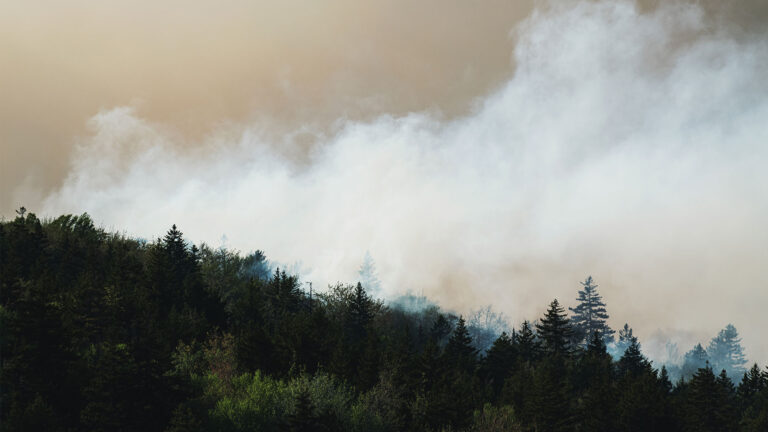
The standards referenced in the article below are out of date as of February 1, 2025. Please refer to ACP’s new standards for up-to-date information.
Evacuation orders and alerts are in effect for several Alberta communities due to wildfires. As of July 23, 2024, evacuation orders are in effect for
- Jasper National Park (including the Jasper townsite),
- all three communities in the Little Red River Cree Nation (John D’or Prairie, Fox Lake, and Garden River),
- Chipewyan Lake, and
- Janvier 194 (Chipewyan Prairie First Nation).
An evacuation alert is in effect for the Hamlet of Janvier.
These evacuations not only mean that residents are displaced from their homes, but pharmacies and other essential services are closing as well. As a result, many individuals may be seeking temporary pharmacy services from other Alberta pharmacies.
As some of the major roadways leading east out of Jasper National Park have been temporarily closed, some individuals may be required to seek temporary pharmacy services from B.C. pharmacies. As a result, Alberta pharmacies might receive health information and assistance requests from B.C. pharmacies.
ACP understands that this may increase your workload, and we appreciate all your efforts to help your colleagues and their patients during this difficult time.
As a reminder, when providing care for a temporarily displaced patient due to a natural disaster or other circumstances, please
- Form a professional relationship with the patient and identify and assess their current health needs.
- When assessing the patient, complete a best possible medication history and health history. This should include a review of Netcare.
Pharmacists have multiple tools at their disposal for providing care to patients:
- Transfer prescriptions. Collaborate with the patient’s regular pharmacy and healthcare providers to transfer or obtain required prescriptions.
- Prescribe or adapt prescriptions for the patient. In these circumstances, review the following standards of practice for direction:
- Standard 12 of the Standards of Practice for Pharmacists and Pharmacy Technicians (SPPPT). Note that Standard 12.1 specifically provides direction on adapting an existing prescription when the pharmacist does not have the original prescription. This is likely to be the case for displaced patients when their regular pharmacy is closed.
- Standard 13 of the SPPPT authorizes any pharmacist to prescribe at initial access when the patient urgently requires drug therapy to prevent imminent mortality or morbidity and it is not possible to see another health professional.
- Standard 14 of the SPPPT provides direction for pharmacists with additional prescribing authorization to prescribe at initial access or manage ongoing therapy.
- Provide virtual care if appropriate. If the patient is not able to attend the pharmacy in person, care may be provided virtually in accordance with the Standards of Practice for Virtual Care. Under these circumstances, regulated members must consider the limitations of the enabling technology used and determine what professional services they are able to provide.
- As the duration of an evacuation order may be unknown, consider prescribing patients a reasonable amount of medication to ensure continuity of care until they are able to access their medication supply or follow up with their regular healthcare providers. This, of course, must be based on your assessment of the patient.
- Collaborate with the patient’s healthcare providers as required and communicate any prescribing decisions as soon as possible. Remember to complete and share any necessary documentation.
- Exemptions for prescribing and providing controlled substances issued by Health Canada under Section 56(1) of the Controlled Drugs and Substances Act (CDSA) allow pharmacists to
- extend or renew existing prescriptions for drugs regulated under the Controlled Drugs and Substances Act (CDSA),
- transfer prescriptions for drugs regulated under the CDSA to other pharmacies,
- accept verbal orders for all controlled substances regulated under the CDSA, and
- arrange for delivery of prescriptions of controlled substances to patients’ homes or other locations where they may be.
Refer to ACP’s Controlled drugs and substances exemption guidelines for more information.
Temporary/emergency pharmacy closures
If your pharmacy is forced to temporarily close due to a natural disaster, please notify ACP via email at pharmacy@abpharmacy.ca as soon as possible. As this situation constitutes an emergency, the requirement to obtain approval 30 days prior to closure is waived and the pharmacy may remain closed beyond 14 days if required. There is guidance available on the ACP website with information on what to do if your pharmacy temporarily closes.
If the pharmacy is temporarily closed, telephone voicemail, pharmacy websites, and social media accounts should be updated, if possible, with information to notify the public. The pharmacy should advise patients that they can receive care at other pharmacies.
When it’s time to reopen your pharmacy
- Exercise caution and professional judgement in using drugs that may have been impacted by smoke/fire damage.
- Conduct narcotic counts and reconciliation as soon as possible after the pharmacy has opened.
- Do not use refrigerated drugs or vaccines affected by fridge temperatures that were not maintained due to power disruptions. If there is no evidence that temperatures were maintained, you must assume they were not.
- Remember to check Netcare before providing service to returning patients, as their medication therapy may have been modified at the “emergency” pharmacy they attended during the closure of their regular pharmacy.
- If there has been structural damage to the pharmacy or unauthorized access to the premises has occurred, consider if there has been the possibility of a breach of personal health information.
While evacuations have been limited so far, there is potential for the wildfire situation in Alberta to worsen in the days and weeks ahead. We recognize the burdens that these circumstances cause – the limited time you have to address all the issues you face, the challenges of looking after new patients with limited information, and the limits to your physical and emotional energy. Remember to do your best to look after yourself and those working with you whenever a natural disaster occurs.




